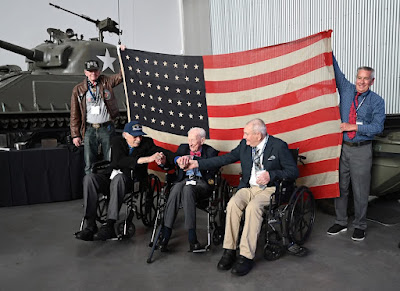Eleven days ago, I sent this year's "Read + Write: 30 Days of Poetry" document to the Cuyahoga County Public Library staff to check and recheck and blogify and eventually send out to its many readers, a screen a day through the month of National Poetry Month, which is April.
I started in November with a list of 97 poet names I'd been gathering all year, which is the easy part because Northeast Ohio has many many (over 97) excellent poets we haven't published in our 13 years (30 poets a year: about 390 so far). We try to publish a poet only once, and with two mistakes and a lost year, we haven't repeated poets.
But the hard part, for me, is finding them. A lot of poets keep their writing out there but keep their contact information on the downlow, and I depend on John Burroughs of Crisis Chronicles, Literary Cleveland, and Facebook friends to ask poets for poems. Because we don't take submissions. We ask for the poem we want. This is sort of the opposite of the way most journals and presses work for submissions. It means more work for me at one end, but it also means I don't have to reject poems that "are just not for us at this time."
Once I contact a poet, the rest is getting bio and citation information, cutting, pasting, ordering. Oh, and I create a prompt for each day.
Recently, reading old copies of Best American Poetry, I came to the 2014 anthology, edited by Terrance Hayes, who decided to write some centos from his collection, based on themes he found among the 75 poems he had curated. Despite the fact I only had 30 poems, I thought I might be able to write a cento (it turns out two) because we are a bit focused on Northeast Ohio, from whence sprang these:
NE OHIO CENTO: ENVIRO
Perhaps destruction is how it
always begins.
A warped Dalí garden:
An octopus tentacle, a kitten’s
whisker, a spider’s leg.
The moon’s backside takes potshots
for earth.
All the world’s trees…that somehow
Never sprouted stone leaves
Silver blue roots gripping the
soil, grounded,
The thrum of a life well bruised.
This time, there were brighter warning signs
Lake Erie Monster Water
The air still and stifling for the middle of May
Every birdsong a dirge.
Third time in line today:
The numbers of the gas pump
Roll like a combination lock
This is how we make most of our money
The slow swell of days into weeks into years.
NE OHIO CENTO: REPAIR
History is funny. Braggarts of
loss.
The meaning of the term anosognosia.
It’s hunting season again,
We don’t even try to turn away,
Just hit the iceberg head on.
How hard a thing.
Music blasts from a teen’s
earbuds.
Tan and tough as old goat meat
Fists sprout spikes. Fingers of
night.
Where’s my guardrail?
In the tire swing that hangs from
the cherry tree.
A luau of fixing in Cleveland:
Orisons of flute choirs, a vibrato
of organs.























